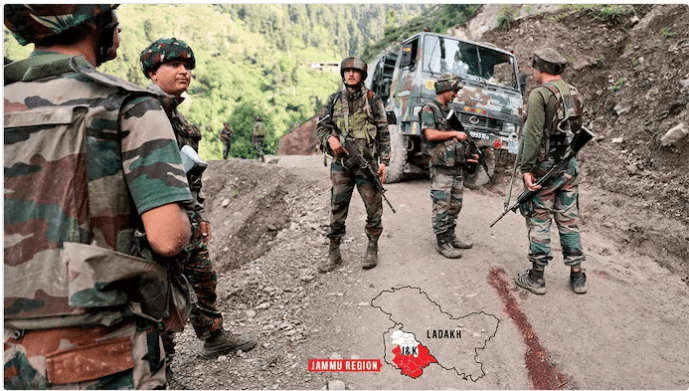Pakistan’s revised gameplan for Jammu

July has been a trying month for India’s security forces in Jammu, with nine casualties in the first three weeks. The recent spate of terror attacks in a region that had been declared ‘militancy-free’ some 15 years back has the Indian security establishment scrambling for a tough response. The count this year is already inching up to the number of casualties suffered in all of 2023 (20 deaths), with army sources now even suspecting the involvement of the Pakistan army’s elite SSG (Special Service Group). Besides Poonch and Rajouri, there have also been attacks in Kathua, Udhampur and Doda. The latest incident was the killing of four soldiers, including a captain, in the Dessa hills of Doda on July 15.
The hilly Doda district has been hit hard—the past two months have seen almost half a dozen terror strikes. The area falls under the province of the army’s Delta forces, has mountains as high as 14,500 ft covered with dense coniferous forests spread over 1,400-odd sq. km where militants can find shelter. The local population, a mix of Hindus and Muslims, have not forgotten their brutal past. Scores of them had shifted from the villages to safer zones like Jammu or other towns during the peak militancy years (1996-2006). The region had seen over a dozen massacres of civilians, most of them Hindus. Several people, including three local sarpanches, admitted to india today that fear had again upended their lives. “Earlier, we used to stay out till 10 pm,” says a sarpanch from Bhalesa village. “But now, we return home by 7, and switch off the lights.”

A senior police officer is worried about the fresh bout of violence in the district which shares its borders with Kishtwar, Anantnag and the state of Himachal Pradesh. “I fear militants will recruit locals again, given that old hands like Jahangir Saroori are again active,” he says. One of the longest surviving Hizbul Mujahideen (HM) commanders, Mohammed Amin Butt alias Jahangir Saroori, is a Kishtwar native with a Rs 50 lakh bounty on his head. The police have been circulating posters with photos of Saroori and two other locals, Riyaz Ahmad and Mudasir Hussain, who they suspect may be aiding the “foreign terrorists”. “They can’t roam the jungles without local guides,” says a retired senior police officer who served in Doda in the late 1990s. “Many young people from Doda’s villages crossed to PoK in the 1990s and there is a possibility they may have returned to act as guides to the foreigners now.” J&K police sources say local support has grown again for the militants. At present, it is estimated that close to 300 overground workers (OGW) are active in J&K.
Meanwhile, the security establishment has been in a huddle in New Delhi and Jammu to chalk out a plan for a counter-terror offensive. The heads of the security forces, including army chief Gen. Upendra Dwivedi, and intelligence agencies reviewed the situation at a July 20 meeting in Jammu. Chaired by J&K Lieutenant Governor Manoj Sinha, it called for a “full throttle response” to the attacks. Later, speaking at an event in Srinagar, the L-G said the counter-terrorism strategy adopted in Kashmir would be extended to Jammu. “We will not allow the revival of terrorism in Jammu at any costâ€æwe’ll adopt the Kashmir model to wipe it out,” he said.






